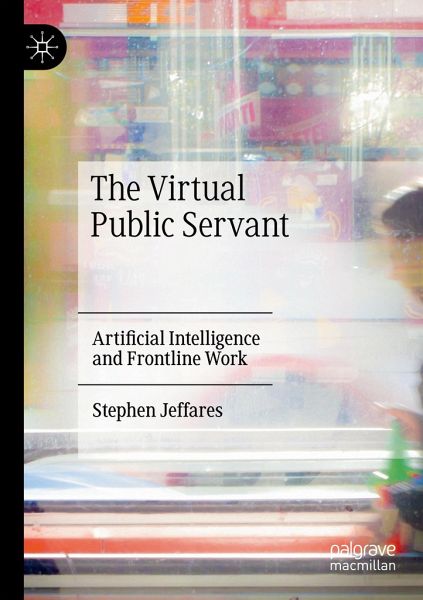
The Virtual Public Servant
Artificial Intelligence and Frontline Work
Versandkostenfrei!
Versandfertig in 6-10 Tagen
83,99 €
inkl. MwSt.
Weitere Ausgaben:

PAYBACK Punkte
42 °P sammeln!
With recent advances and investment in artificial intelligence, are we on the verge of introducing virtual public servants? Governments around the world are rapidly deploying robots and virtual agents in healthcare, education, local government, social care, and criminal justice. These advances not only promise unprecedented levels of control and convenience at a reduced cost but also claim to connect, to empathise, and to build trust. This book documents how-after decades of designing out costly face to face transactions, investment in call centres, and incentivising citizens to self-service-t...
With recent advances and investment in artificial intelligence, are we on the verge of introducing virtual public servants? Governments around the world are rapidly deploying robots and virtual agents in healthcare, education, local government, social care, and criminal justice. These advances not only promise unprecedented levels of control and convenience at a reduced cost but also claim to connect, to empathise, and to build trust. This book documents how-after decades of designing out costly face to face transactions, investment in call centres, and incentivising citizens to self-service-the tech industry is promising to re-humanise our frontline public services. It breaks out of disciplinary silos and moves us on from the polarised hype vs. fear discussion on the future of work. It does so through in-depth Q-methodology interviews with a wide range of frontline public servants, from doctors to librarians, from social workers to school receptionists, and from police officers to call handlers. The first of its kind, this book should be of interest across the social sciences and to anyone concerned with how recent measures to digitise and automate our services are paving the way for the development of full-blown AI in frontline work.














